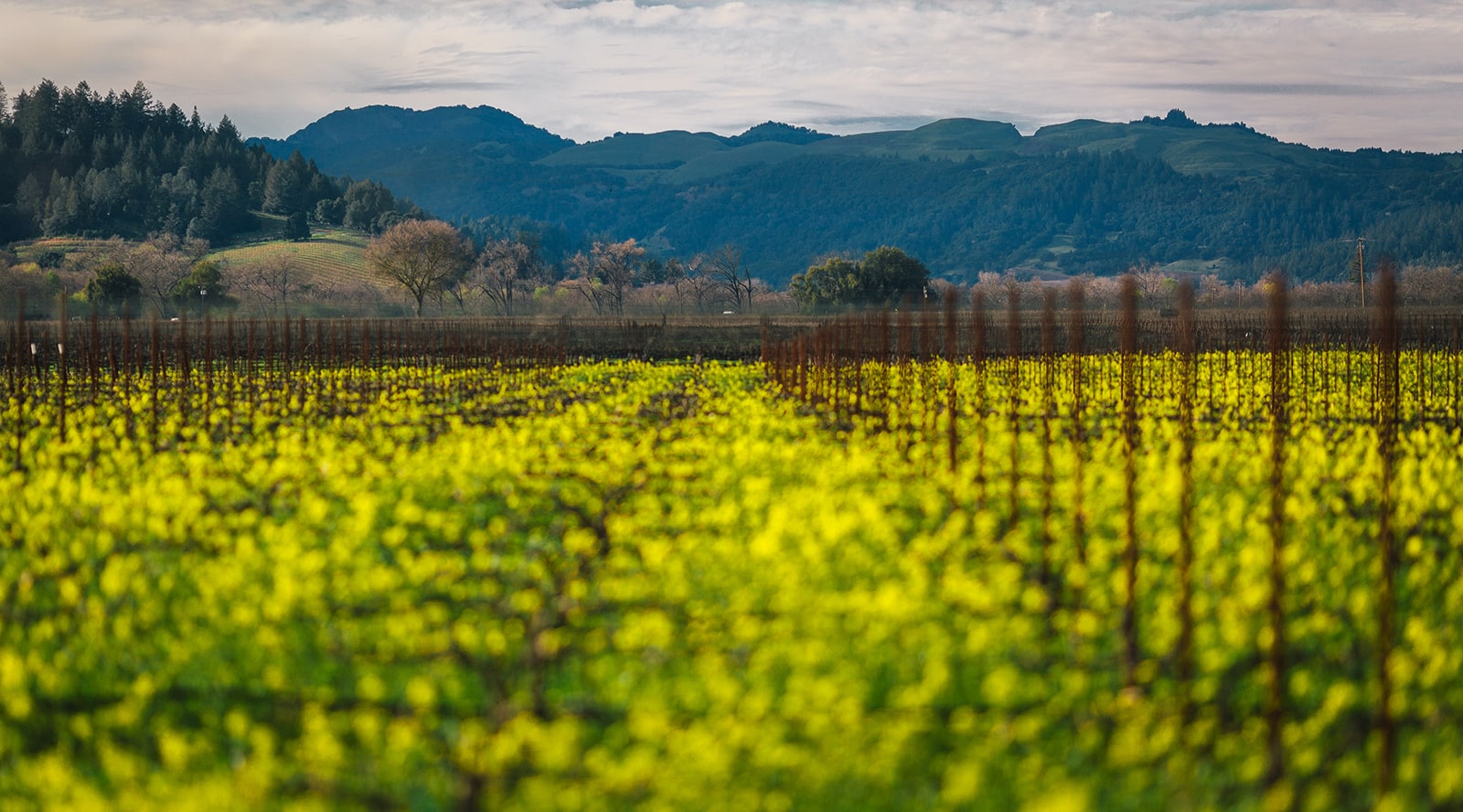Truett Hurst is a certified organic and Biodynamic farm. From the day that we purchased the estate in 2007, our intention was to challenge ourselves to farm the property with the highest ecological standards, and to achieve certification to demonstrate our level of commitment to our customers and our community.
We had a long road in front of us. The estate had been conventionally farmed for decades. Even the topsoil had been sold off. What “soil” was left was severely depleted, with virtually no life above or below the ground. Dry Creek was in very bad shape, with eroded banks stripped of native plants, and no fish or wildlife to be seen.
The care of the Earth is our most ancient and most worthy, and after all our most pleasing responsibility. To cherish what remains of it and to foster its renewal is our only hope.
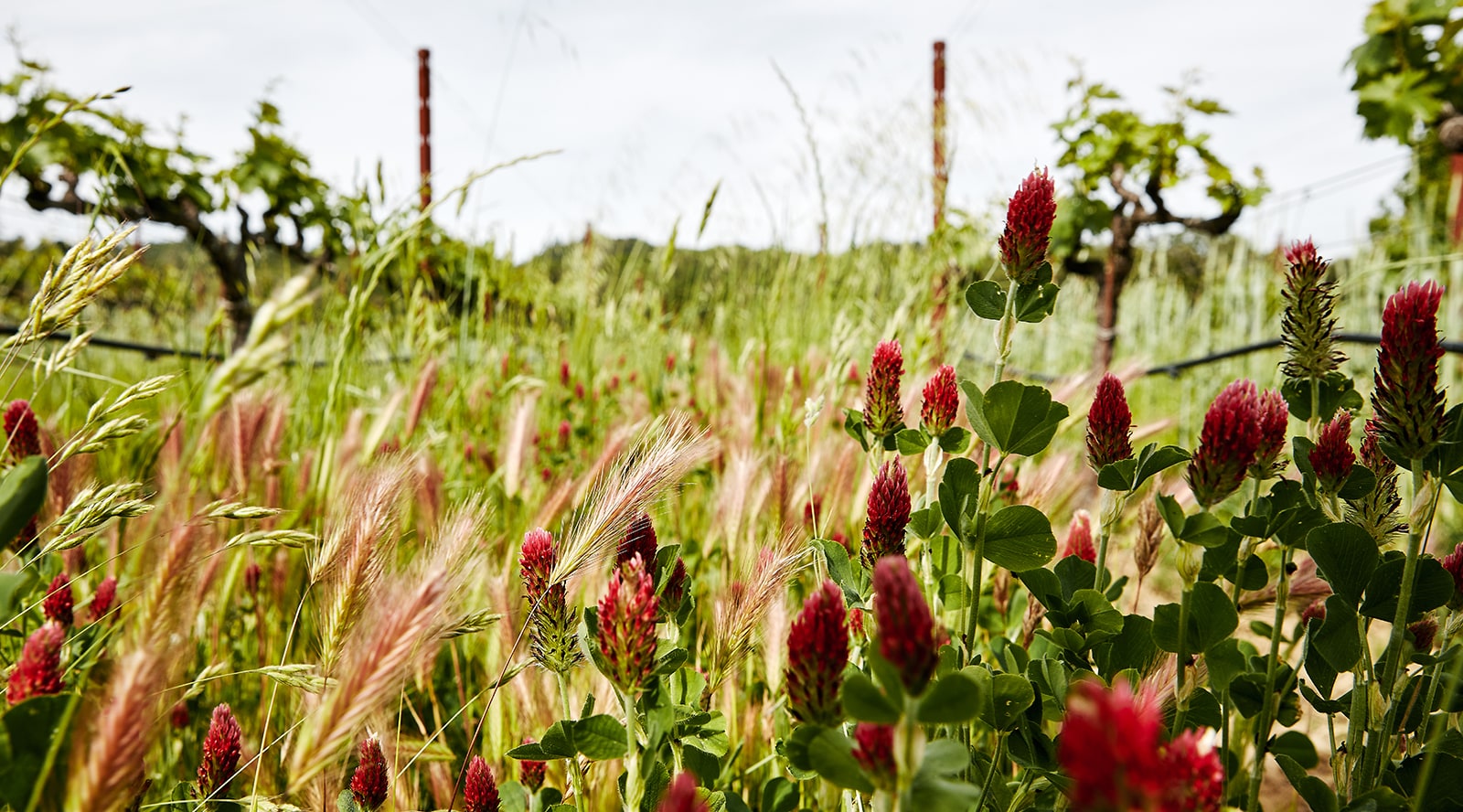
Organic standards describe what you can’t do: no prohibited synthetic inputs. That means no poisonous pesticides or fertilizers, although you can use organic substitutes. No Round-Up weed killer. And if we were growing food crops- no GMOs. It is possible to obtain organic certification for a particular vineyard or garden within a larger, conventionally managed, estate.
Biodynamic farming includes all of these organic prohibitions, and then goes much further. It is an ecological farming system that views the farm as a self-contained and self-sustaining organism, capable of creating and fostering its own health and vitality from the living dynamics of the farm system itself. Maintaining that concept of the farm as an integrated whole, the entire estate, not just a portion of it, must be certified. At least 10% of the farm acreage must be devoted to biodiversity, which can be naturally occurring, like an oak grove or watershed, or created via hedgerows and insectories (plantings that create habitat for the good bugs).
We believe the farm is best regarded as a living organism, with a respiratory, circulatory and nervous system that are all fully integrated into a self-regulating, self-sustaining and self-generating system that mimics the human biological system.
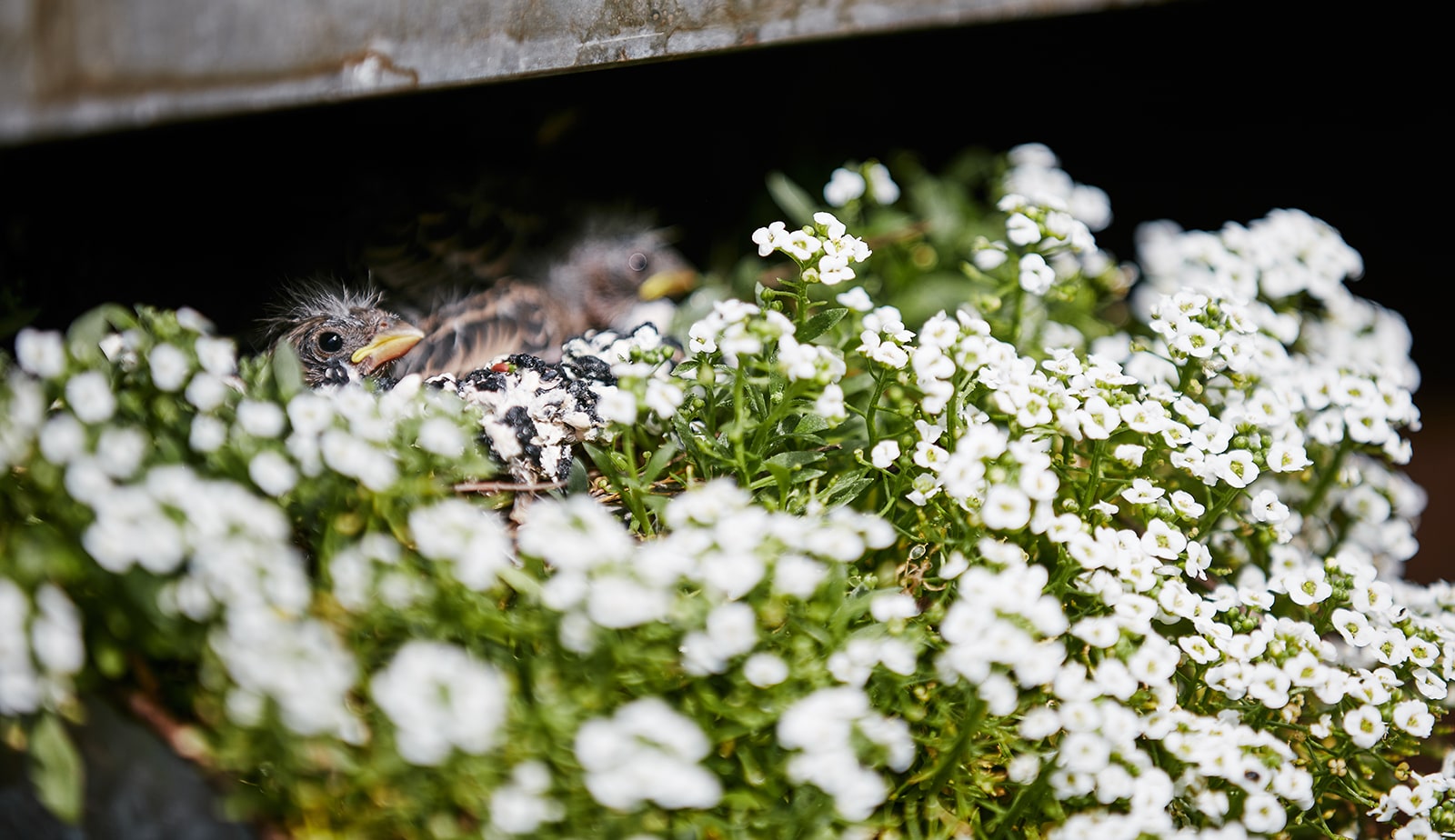
So in the case of Truett Hurst, what does all this mean? Our first priority is bringing living nutrition back to our soil in order to increase fertility, and our number one fertility strategy is our compost program. After harvest, we recycle our leftover grape skins (called pomace) by mixing them with organic cow manure and straw from a local dairy. The resulting compost pile gets turned several times during the year, and then is distributed throughout the vineyard after the following year’s harvest.
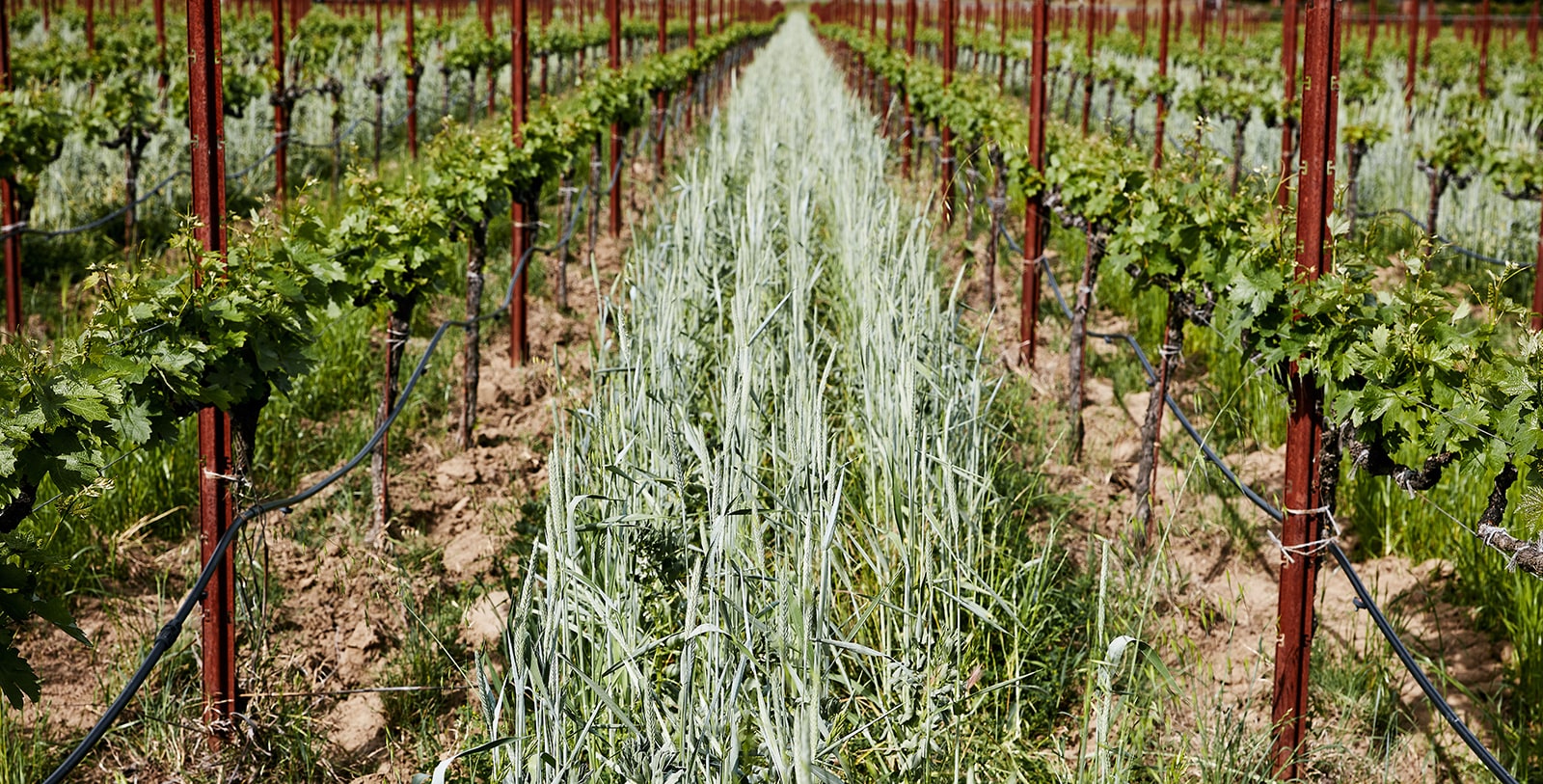
We also plant cover crops- crimson clover, purple vetch, bell beans, peas and oats- that add to the vineyard’s fertility in three ways. First, cover crops pull carbon out of the air and send it through the plants’ roots into the ground. Second, we allow our animals- goats and sheep- into the vineyard during the dormant season, where they happily feast on the cover crops, and leave nutrient-rich fertilizer as their thanks on the vineyard floor. And then the cover crops- aptly called “green manure”- are plowed back into the vineyard with the animal manure.
All of these strategies create healthy porous soils that foster strong, wide, deep root growth, enabling the vines to go deep and transfer all that soil individuality into the grapes. And with every increase of 1% of organic matter in our soil, we increase the capacity for that soil to retain 20,000 gallons of water per acre. Soil conservation is water conservation.
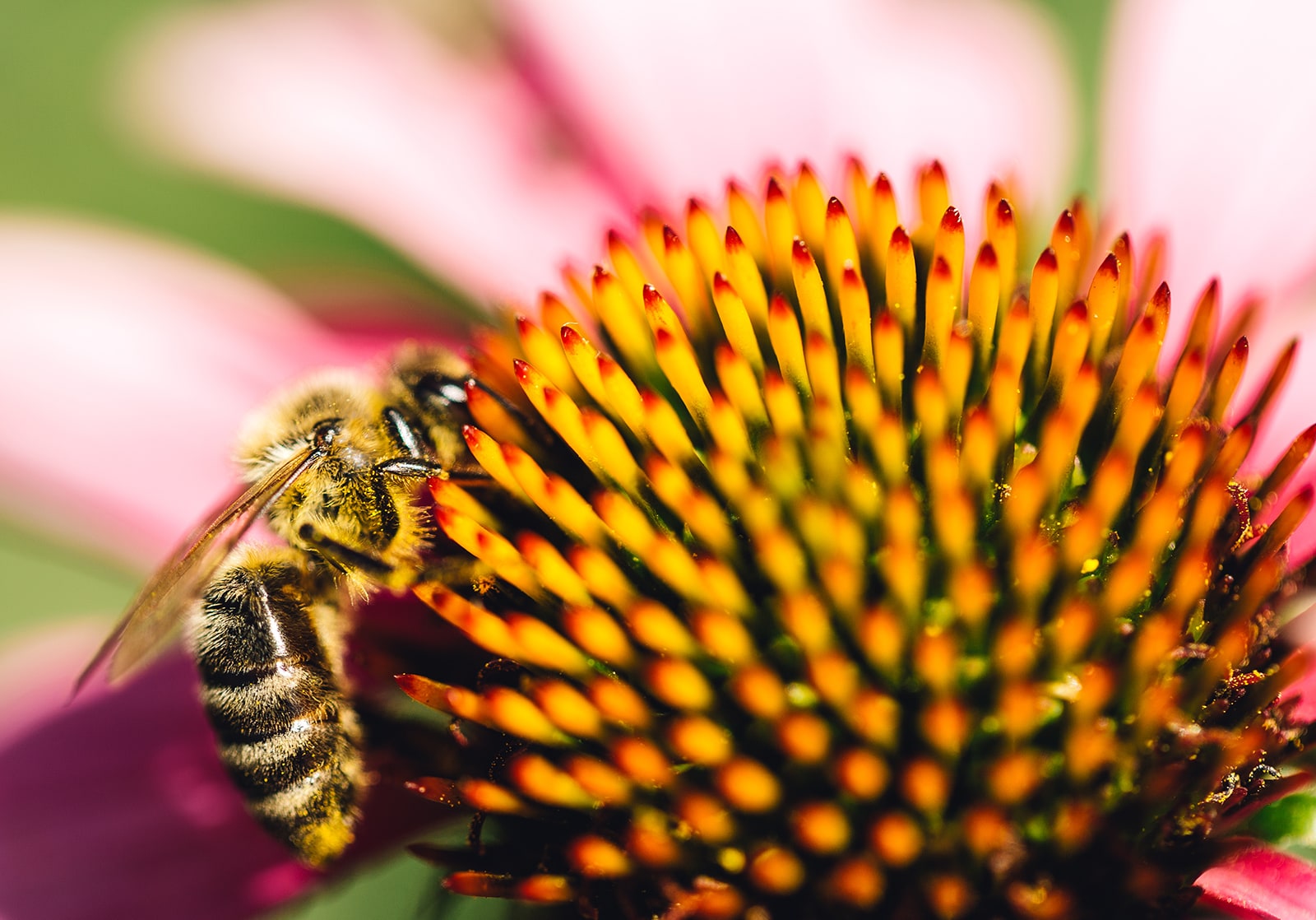
Commercial fertilizers, weed killers, and pesticides are indiscriminate killers: they not only get rid of the bad stuff, they take out a lot of good stuff too. Instead of importing these toxins, we solve for disease, pest and weed issues by finding solutions within the living dynamics of our farm. The key to building a self-regulating system is to add to the diversity of flora and fauna.
We grow hedgerows and lots of drought tolerant native plants that attract a wide variety of bees, native pollinators, butterflies, and many other flying insects, including predators that feed on pests that can damage the quality of the grapes and crops. The birds that flourish within the estate’s biodiversity and riparian corridor also eat the bad bugs, as well as the smaller critters that can be detrimental to the vines. Weeds can’t grow where the cover crops flourish, and all those soil building strategies negate any need for imported fertilizer.
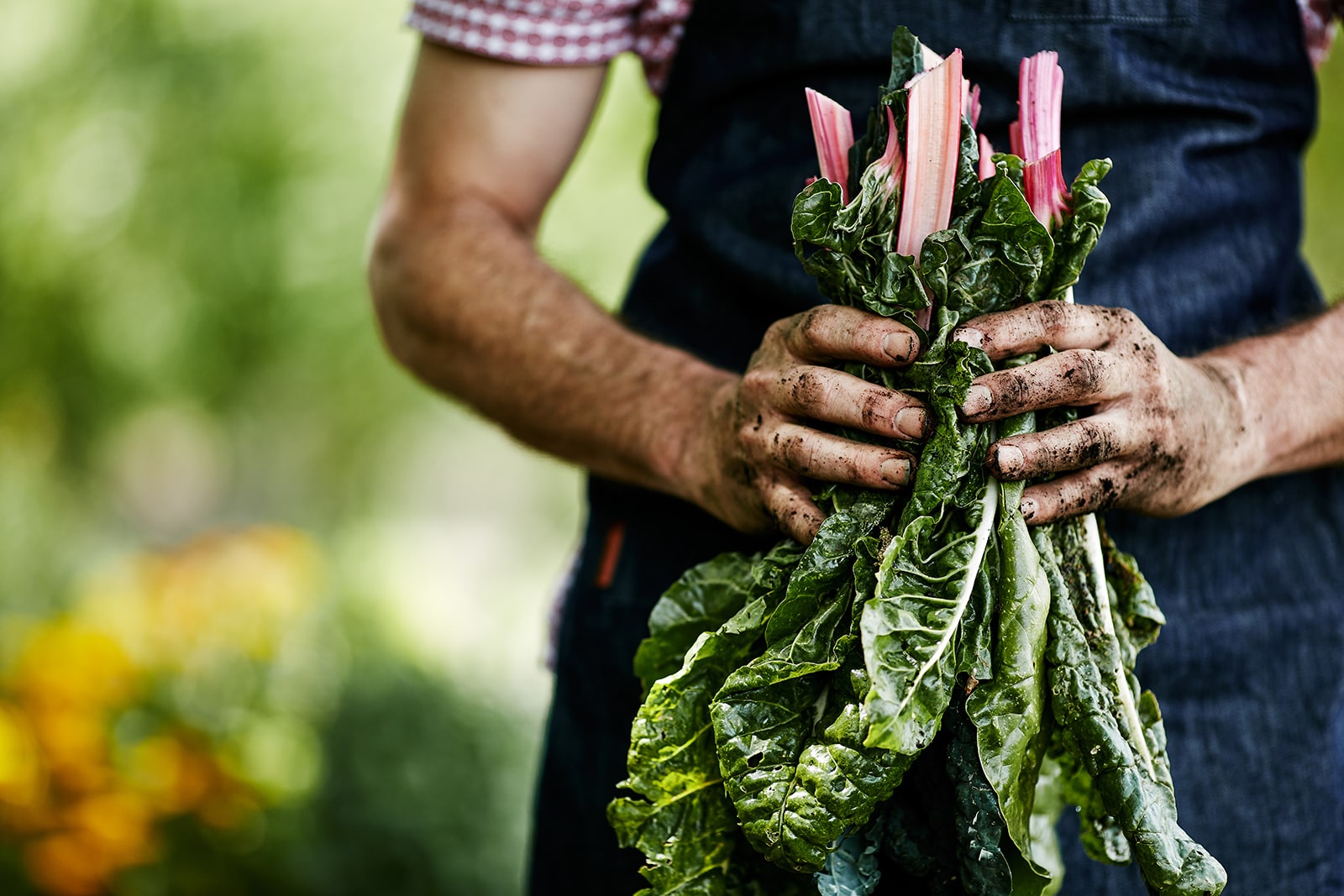
The Biodynamic farmer’s toolkit includes the Biodynamic Preparations. Think DIY homeopathic remedies that we create from medicinal plants, minerals, and composted animal manures. The “preps” are added to compost and soil to stimulate the microbiology, and sprayed on foliage to aid in photosynthesis. We have observed first hand their impacts: superior soil quality, more fertile and stable compost piles, and stronger crop vitality.
Biodynamic farming address the health of our entire property holistically: soil, plants, animals and humans all work together harmoniously. Our commitment to this highest form of ecological farming has dramatically increased the health and vitality of this very special piece of property, and our estate wines which are created from it. The life force of our farm can be felt by all who visit.
